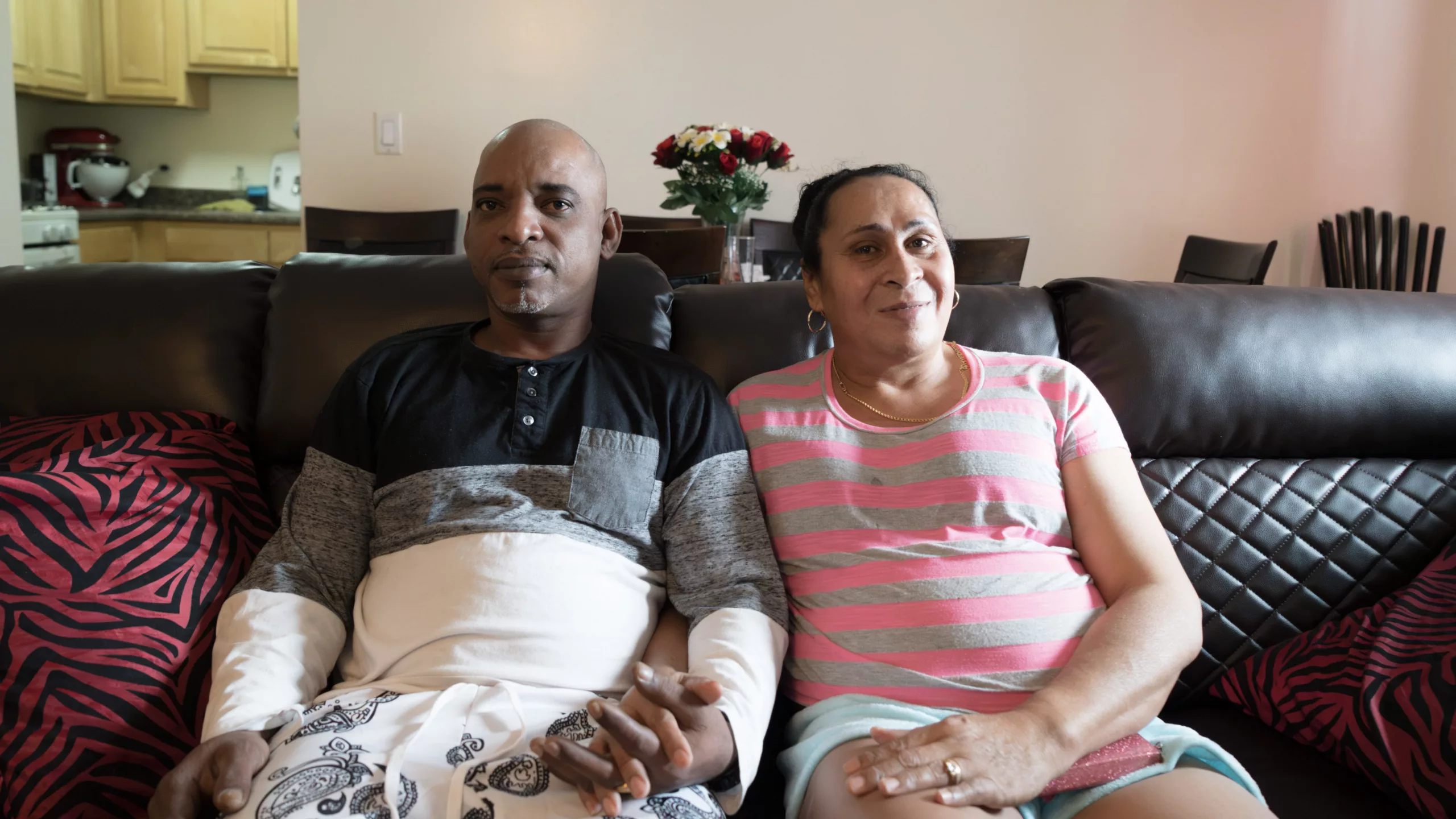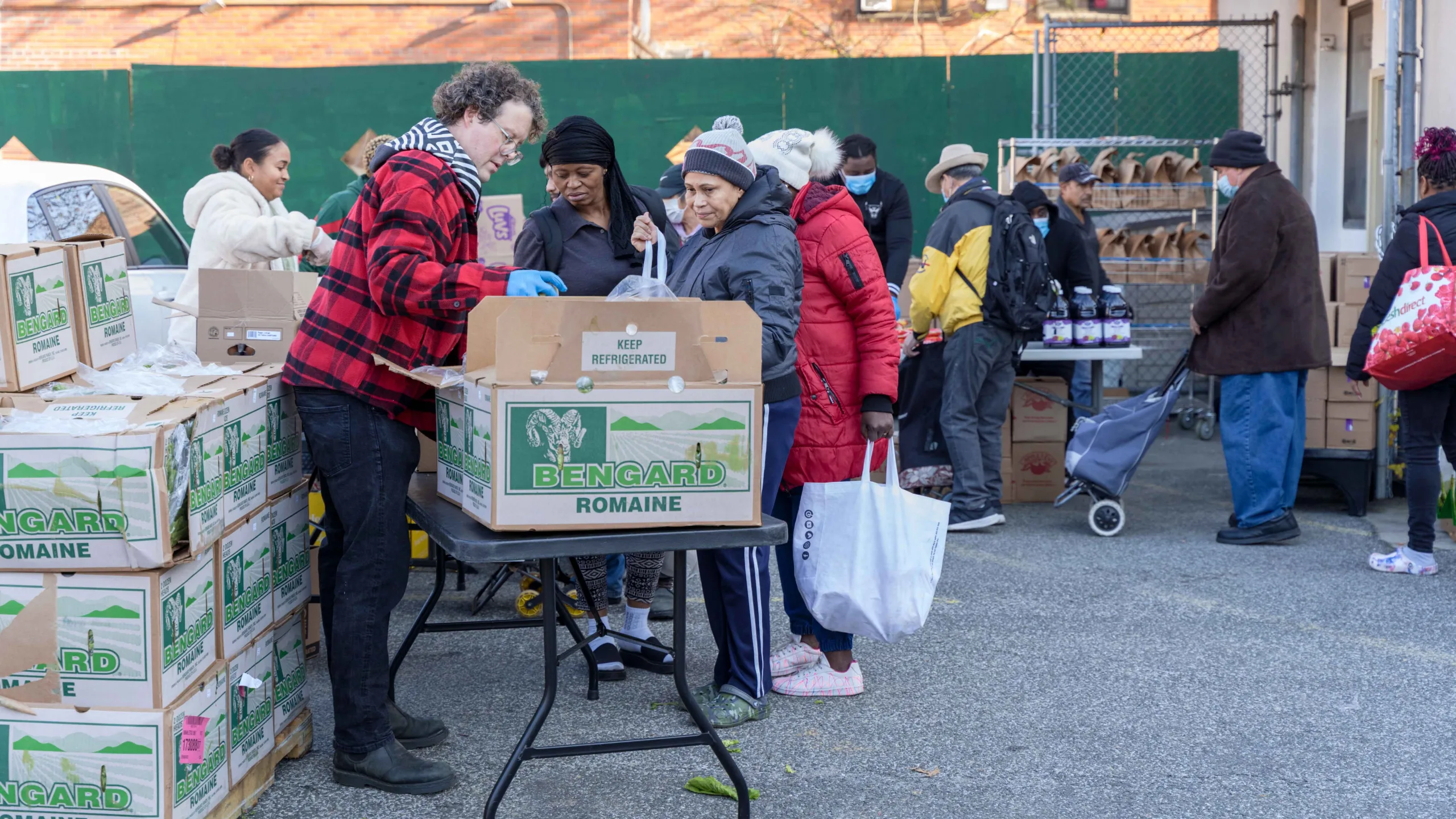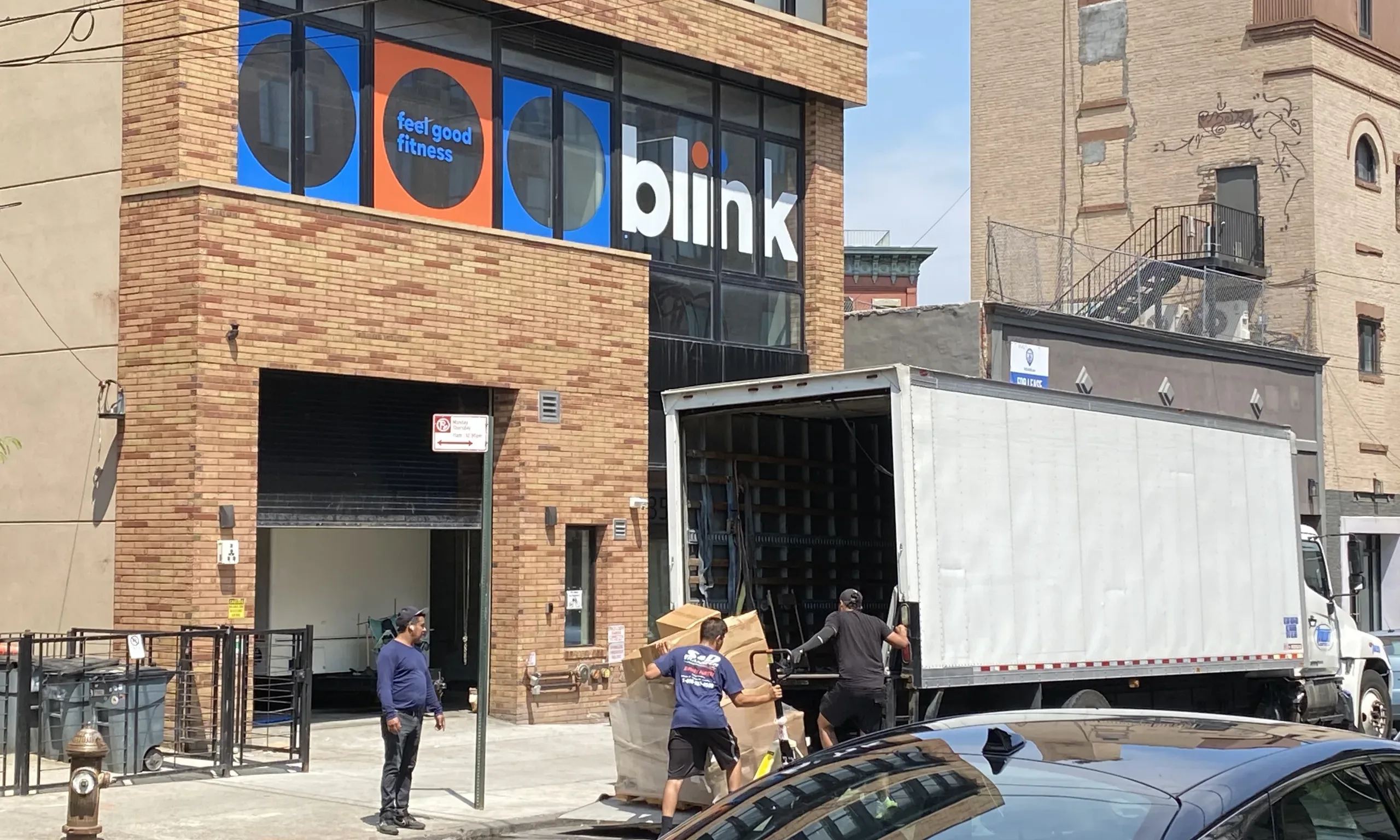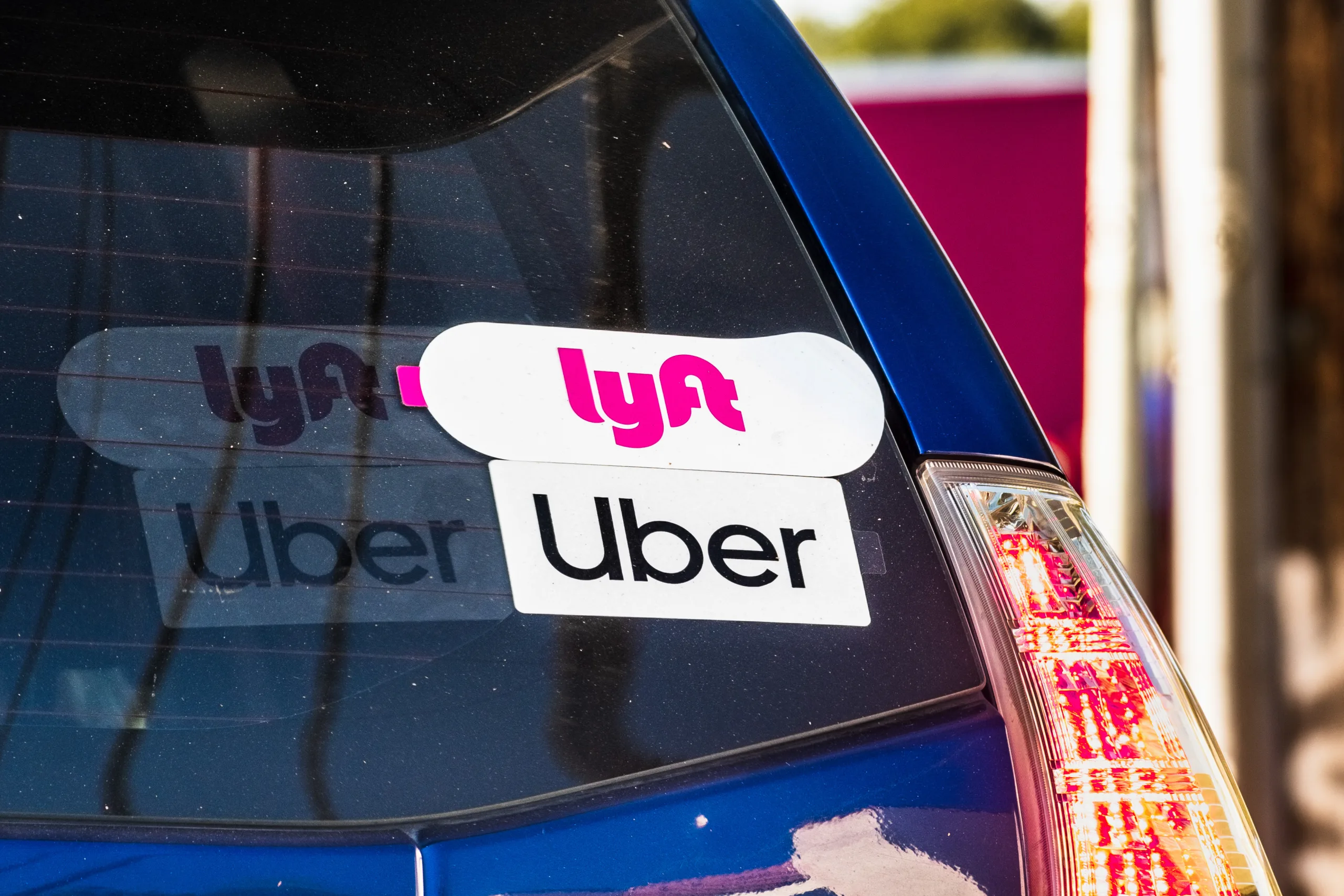When Sean Marcus met Rarepearl, they were working at the same school in Georgetown, Guyana.
Rarepearl had come from Old England, an indigenous village in Upper Demerara-Berbice, Guyana. As an indigenous trans woman, she left her village because of homophobia and transphobia. “I was an outcast from growing small,” Rarepearl, 54, said. “I could not fit here, so I left for the city.”
When she arrived in Georgetown, Guyana’s capital, Rarepearl was living homeless for a few days before a cousin from the LGBTQ+ community took her into his home. While teaching math and science at an elementary school, she met Sean Marcus, who worked as a security guard.
Marcus, 45, was born and grew up in Timehri, a village in South Guyana. His mother was an alcoholic, and he never knew his father. Like Rarepearl, Marcus was an outcast in his village, too. His mother was of East Indian descent, and his biological father was of West African descent. In Guyana, tensions brought on by the racial divide between African and East Indian descendants have gone back to post-colonial times. Because Marcus had a Black father and was growing up in an East Indian setting, he was subjected to mistreatment by his family and his village, he explained. He ended up living in the streets, never having gone to school.
As his mother battled alcoholism, Marcus’s grandmother, Esther Naraine, used to go to Georgetown multiple times a week with him to sell fruits and vegetables. As she grew older, she became unable to make the journey and care for him. Consequently, in 1985, she decided to leave Marcus to live permanently with his aunt, Elizabeth Marcus, in Georgetown.
Naraine later adopted him and gave him her husband’s last name, Marcus. By 1998, Marcus had found a job as a security guard at Keltey Primary School. That’s where he met Rarepearl, who had been working there for two years.
Also Read: A City Hall Wedding Marks the End of a Journey to New York
“That’s how we got together and moved to a little abandoned place then,” said Marcus. “We cleaned it up, and we put money together to buy a plot of land later where we built up a little cottage.”
He eventually left the security job to work as a field laborer in construction. Later, he got his driver’s license and worked as a taxi driver. In 2002, Rarepearl left her job because of discrimination from the staff, parents, and community members, prompting Marcus to quit his job to support her.
The couple transitioned to designing costumes and floats for Mashramani, the carnival celebrated in Guyana. “Since we met, we really achieved a lot, and we were really bound to support each other,” said Rarepearl.
On February 2, 2000, Marcus and Rarepearl moved in together. Marcus was 21 at that time, and Rarepearl, 30, and each year since then they have celebrated their union on February 2.
When they moved together, Marcus was not open about his sexuality. They lived together in the Vreed En Hoop village where anti-LGBTQ attacks are common, and can sometimes turn fatal. But they decided they would not let that happen to them. And they fought back.
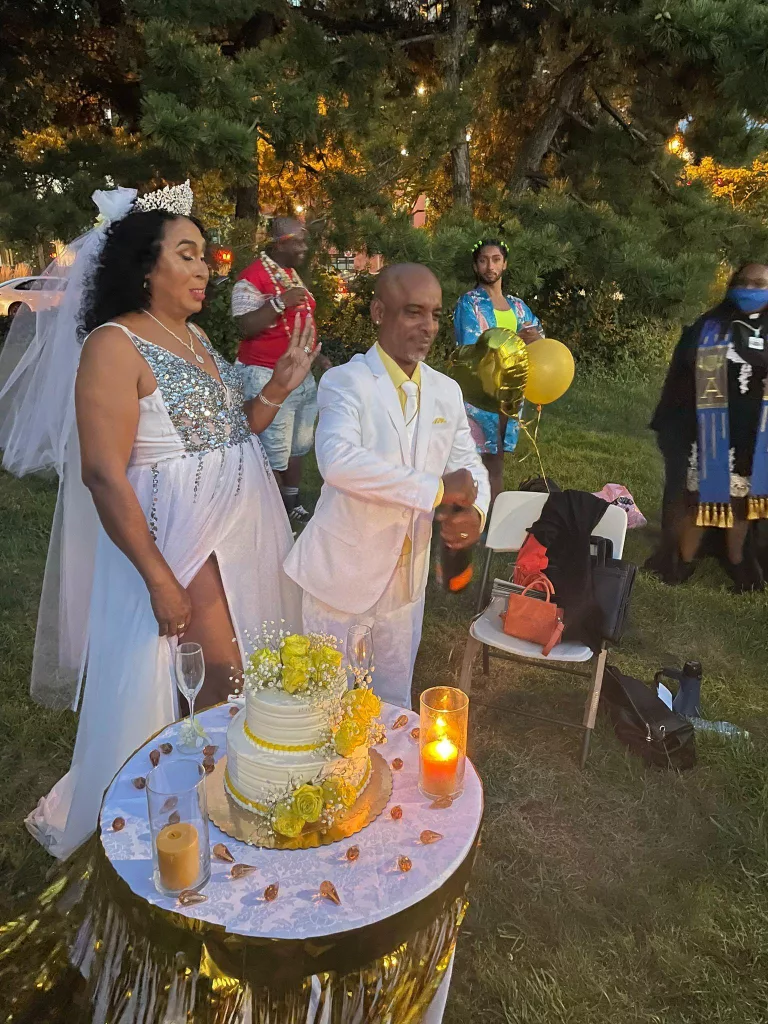
Marcus ended up being arrested multiple times. When the police arrested him, they would mock him, and many times, they denied him due process his rights, he said.
“So, all 24 years that we’ve been together, I get locked up many times, just to protect Rarepearl and myself,” he said. “The police make a mockery of us, don’t want to take a statement from us. If they do take a statement and it goes in front of the magistrate, she would make a laugh out of it and dismiss the case.”
The trip to New York that changed everything
In March 2021, Rarepearl and Marcus decided to come to New York for vacation on tourist visas after saving up. Once there, their peers in the LGBTQ+ community encouraged them to formalize their union as same-sex marriage is not legally recognized in Guyana.
Also Read: Russia Drove LGBTQ+ People Underground. This DJ Fled and Found Community in NYC.
They married on September 4, 2021. With their peers from the Caribbean Equality Project, a New York-based Caribbean LGBTQ+ organization, they had a celebration at Pier 46 in Manhattan.
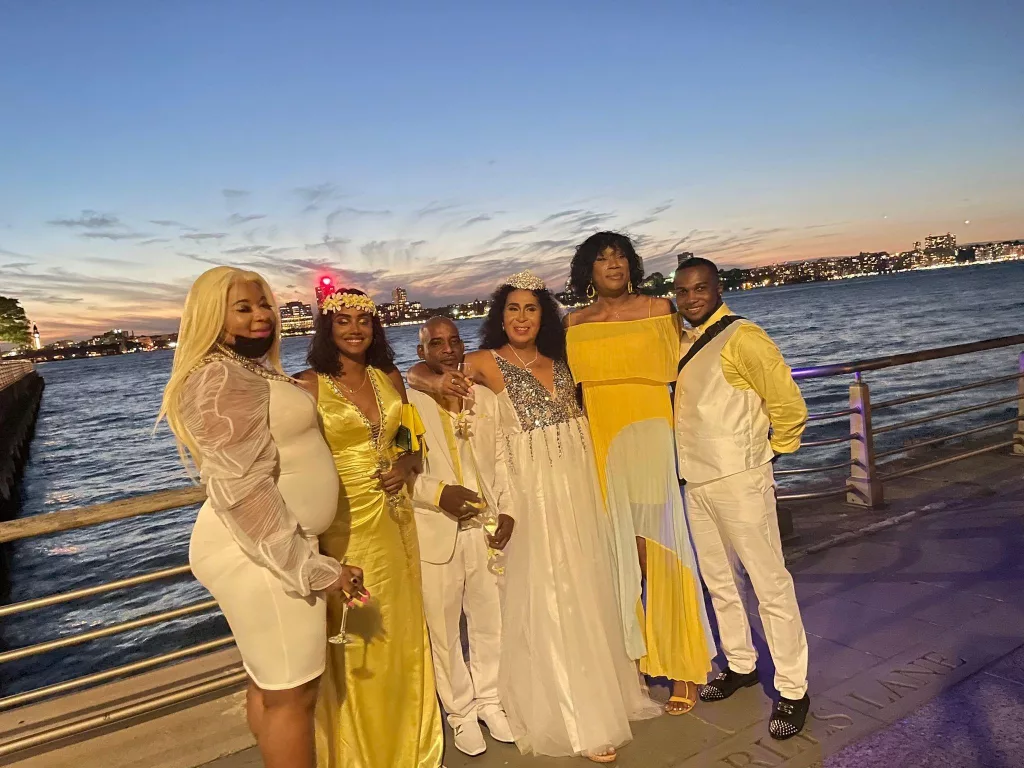
However, their engagement ceremony photos were taken by an unidentified person and posted on social media. By the time they returned to Guyana, the images had gone viral. Subsequently, their home was ransacked, and the death threats multiplied. In Guyana, engaging in same-sex sexual activity between men is prohibited by law, with potential sentences carrying a maximum penalty of life imprisonment.
Living love and liberty fully in New York
They came back to New York the following year and applied for asylum. Immigrant organizations helped them find a shelter, where they lived for 11 months. While their asylum decision was pending, they qualified for permanent housing. The couple now lives in Brooklyn in a quiet one-bedroom apartment inside a six-story building.
In New York, they said they are able to live their true lives and their real selves. “Everything that I dreamed of as a child growing up, is happening right now,” Marcus said.
Two months after they arrived in New York, Marcus was referred to an agency providing free GED classes. ”Today, I can safely say I can pick up a book, and I can read,” he said. It’s the first time Marcus has been in a classroom as a student in his entire life.
Also Read: LGBT in NYC: Where to Get Healthcare, Name Change Services and More
Rarepearl also expects to have gender reassignment surgery soon. After marrying her life partner of decades, one of her goals was to change her name to suit her gender identity, something that Marcus was happy to support. “I’m very much excited. I’m the one who I had a discussion with about whether she would like to do it. And, you know, we go over it and then she said yes,” said Marcus.
In New York, the couple says they are able to enjoy freedom that was impossible in their home country.
“New York has become like a dream come true. Since I’ve been here, everything has fallen into place,” Rarepearl said.
Lingering discrimination
Both Rarepearl and Marcus’ respective families have not have come to grips that they are a couple and they are living together.
“We have proven both sides of the family wrong because we still together and every time they see us, we are happy,” said Rarepearl.
Currently, Marcus’ family occupies their home in Guyana.
In New York, the couple found a community through the Caribbean Equality Project, however, the couple says they still face discrimination in the Guyanese community here. Marcus and Rarepearl have avoided living in Queens, which has some of the largest Guyanese communities in New York, because of the multiple rejections they have experienced.
Also Read: Spotlight: The Guyanese of New York City
TestPost3
“They still discriminate against LGBT people,” said Marcus. “They may laugh at you and smile at you. But deep down within, they do not agree with the life that you live.”
He said he goes to Queens only when he needs to purchase Guyanese products he cannot find in Brooklyn and when the Caribbean Equality Project has gatherings or support group meetings.
For Rarepearl, who describes herself as an outgoing person, Marcus’ introverted nature has taught her much about connection.
“I showed him life,” she said. “He showed me love.”
